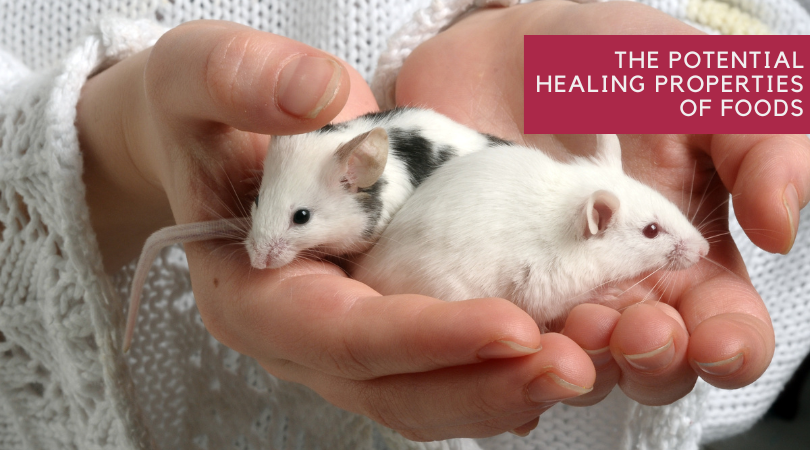The Potential Healing Properties of Foods
Posted on
In the quest for better health and wellness, the foods we consume play a pivotal role. While the benefits of a balanced diet are widely recognized, recent advancements in animal research are uncovering intriguing insights into how certain foods may offer more than just basic nutrition.
Pomegranates
More than 6 million Americans are living with Alzheimer’s, a degenerative brain disorder that is the leading cause of dementia in older adults. Scientists have been searching for a cure for years, primarily in drug candidates and lifestyle changes.
A recent study at the University of Copenhagen in Denmark has identified a new potential method of alleviating Alzheimer’s symptoms, from an unexpected place: pomegranates.
When the gut processes certain polyphenolic compounds found in pomegranates, it produces the natural compound urolithin A, which has significant antioxidant and anti-inflammatory properties.
In the study, researchers found that three mice models of Alzheimer’s treated with urolithin A for 5 months showed improved learning and memory, reduced protein buildup, less DNA damage, and lower brain inflammation.
While the results may not necessarily translate to humans directly, it is a promising therapeutic avenue for Alzheimer's treatment.
Mushrooms
A team of researchers at Penn State University has identified a compound in white button mushrooms that could potentially benefit gut health in mammals by activating a protective biological response.
The new compound was found to activate the aryl hydrocarbon receptor (AHR), which is found in mammals including mice, pigs, and humans. The identified compound specifically activated AHR in cell lines derived from humans and mice.
AHR is crucial for gut health, playing multiple roles. When activated, it helps detoxify harmful substances in the gut. Inhibition of AHR can reduce tumor growth in some cancers. Additionally, AHR is vital for maintaining the gut's mucosal lining and preventing bacterial invasion, supporting overall gut integrity.
The discovery opens new avenues for investigating how chemical mixtures in foods could react with AHR to protect gut health in humans.
Pecans
Nuts are already known as a healthy snack, but pecans in particular may have added benefits in the fight against obesity.
In a new study, researchers at the National Institute of Medical Sciences and Nutrition Salvador Zubiran in Mexico and the Department of Horticultural Sciences at Texas A&M University found that mice fed a high-fat diet including whole pecans or pecan polyphenol extract were resistant to obesity, fatty liver disease, and diabetes compared to mice fed a regular diet.
In the experiment, mice fed a high-fat (23%) diet for 18 weeks gained 37% more weight than those on a regular (7% fat) diet, while those fed the same high-fat diet along with pecans gained the same amount of weight as the control group.
The mice fed the pecan-enriched diet also showed lower cholesterol and insulin resistance, higher glucose tolerance, lower inflammation, increased oxygen consumption, and other health benefits.
The results of the study could indicate the potential of pecans as a non-pharmacological approach to the prevention or treatment of obesity.
Yogurt
Researchers at the University of Virginia School of Medicine have found that yogurt can mitigate depression and anxiety in mice, which could have potential for humans.
Yogurt and other fermented foods contain the bacterium Lactobacillus, which helps the body manage stress, potentially preventing the onset of mental health conditions like depression and anxiety.
Using a gnotobiotic mouse, the research team removed two native species of Lactobacillus—L. intestinalis and L. murinus—and found that they provide protection from environmental stressors.
The findings show promise in new methods of treating mood disorders in humans.
Broccoli Sprouts
In a study at the University of Maine, researchers investigated the effects of high-fiber diets, specifically those including broccoli sprouts, on inflammatory bowel disease (IBD) using IL-10-knockout mice. The research aimed to explore how broccoli sprouts, known for their anti-inflammatory compounds, could alleviate Crohn’s symptoms and impact gut microbiota.
Mice were divided into groups based on age and diet, and their responses to the diet were observed through disease progression and microbial community changes. The results showed that younger mice on a broccoli sprout diet experienced milder symptoms and had healthier gut microbiota compared to older mice. This suggests that broccoli sprouts may offer therapeutic benefits for IBD patients.